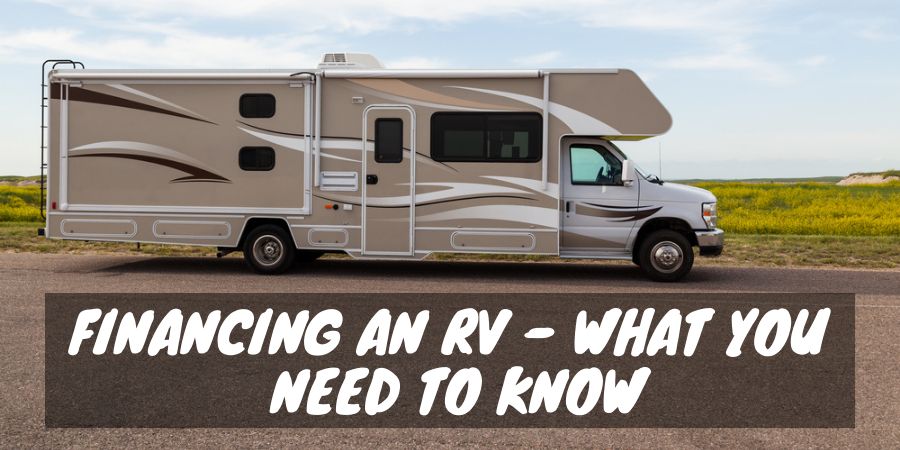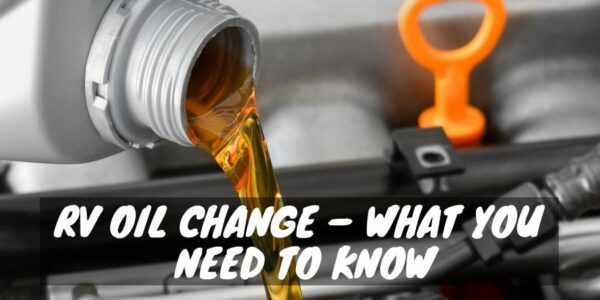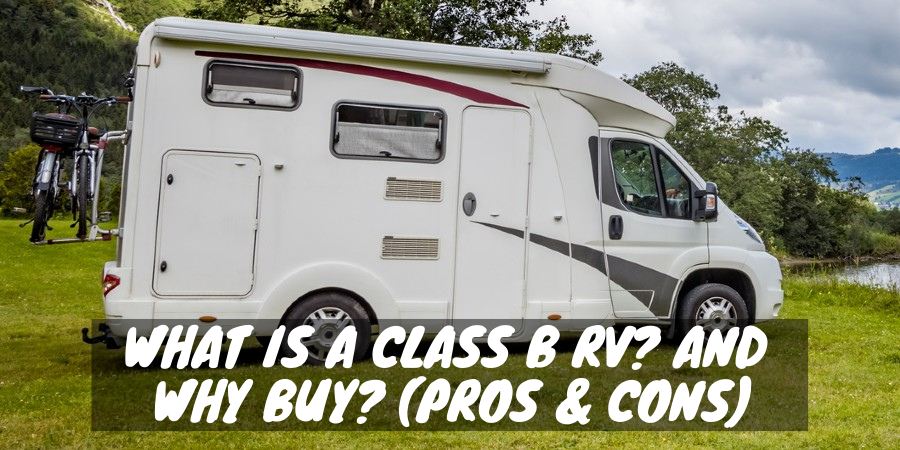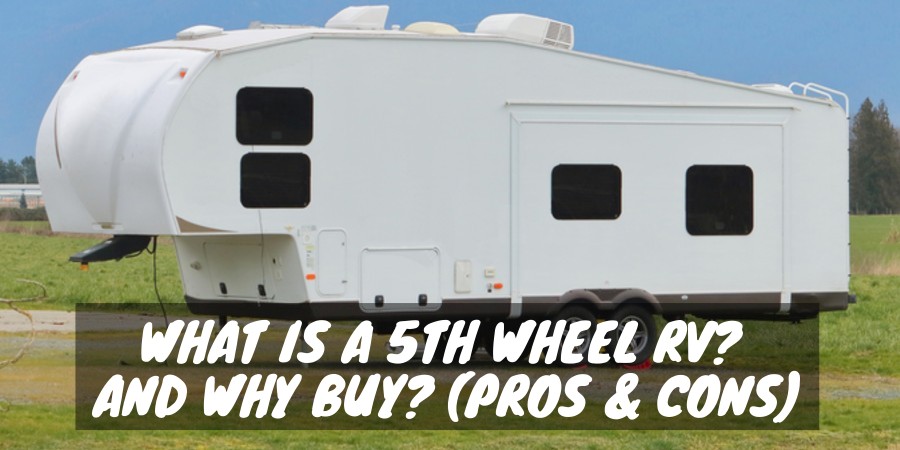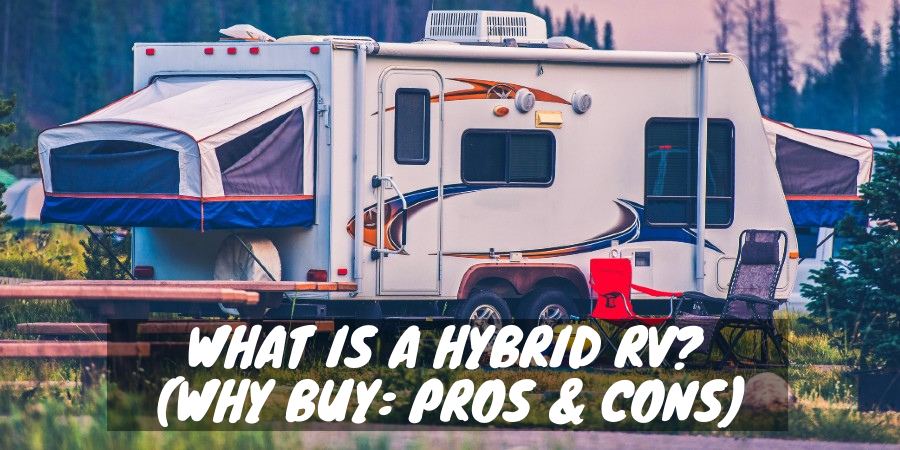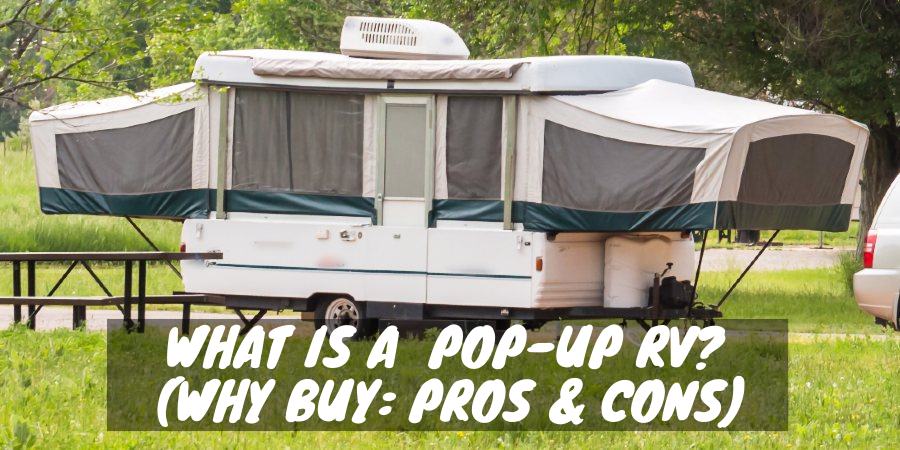Buying an RV is a significant investment that most people need to finance, but many don’t understand that securing an RV loan isn’t the same as those for automobiles.
The rules for financing a recreational vehicle can get confusing. Downpayment requirements, RV age restrictions, income, interest rates, collateral, and length of loan all play a role after you find a lender who even offers RV financing.
To assist you in understanding what it takes to qualify for an RV loan and what companies are best to deal with, I put together everything you need to know about RV financing right here.
By the end, you’ll be ready to start shopping for the right recreational vehicle that fits your financing budget!
What Is an RV Loan?
RV loans are not cut-and-dried like a car loan, nor are they as complicated as a home loan, but more of a blend of the two. The unique status of RV loans puts them into a separate category, and not all banks or lenders offer them.
Most RV finance companies will offer loans for both new and used campers, with amounts ranging on average between $20,000-$300,000, but some go much higher. Loan terms can spread over 10-20 years.
Recreational vehicles, especially when buying a new Class A motorhome or large fifth wheel, can be very expensive. The cost could push buyers out of the market if RV financing weren’t available to reduce that hefty sum into affordable monthly payments.
Let’s dive deeper into how RV loans work and how you can prepare beforehand to make the process go smoothly.
Qualifications for an RV Loan
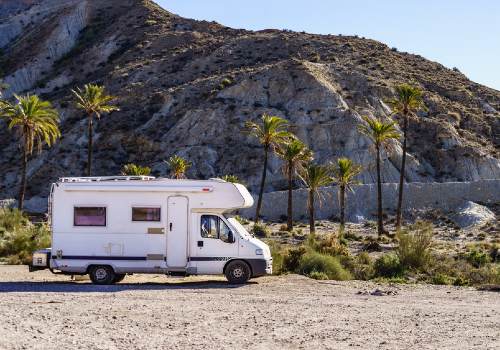
Before you find an RV finance company and fill out an application you’ll need to know the following:
- Income and employment stats
- Credit score
- Estimation of loan size
- Monthly payment you can afford
- Down payment amount
- Collateral requirements
- Age of RV
- RV usage
You should expect RV lenders to ask you these questions, so start making notes with the answers. Let’s go into more detail on each topic to know what you need for a recreational vehicle loan.
Income Requirements to Qualify For RV Financing
Income and employment status are the first things you’ll need to provide to apply for any loan.
Have pay stubs or W2s ready to show lenders, as well as proof of how long you’ve held your job. Most RV finance companies will require a minimum of a year at one job to consider a loan.
Even if your income level is not very high, don’t think you can’t secure an RV loan. Some lenders will work with buyers making around $25,000-$30,000 yearly.
Credit Score Necessary to Secure an RV Loan
Do look up your credit score. You can find your credit score online for free without impacting your rating.
Lenders will use your credit score and look at your debt-to-income ratio to set the APR loan rate for your RV purchase. Most RV loan officers want a credit score minimum of 700-720.
The higher your credit score, the better.
If you’re below a 700 score, consider working to build that number up before applying for an RV loan. If you don’t have time to do that, look into RV finance companies (a top one is down below!) that work with people with lower credit ratings.
Estimation of RV Loan Size

Before you need to haggle with RV sellers and RV financing companies, sit down and figure out what size of loan you’ll need and what the monthly payments will be.
Don’t waste time trying to buy an RV out of your budget. Use an RV loan calculator to play around with loan amount numbers, so you have a better idea of what to expect.
What RV Monthly Payment Can You Afford?
After you play with the RV loan calculator, you quickly realize that the RV price isn’t all you need to consider.
When you add in fees, taxes, and interest, the cost of your RV can rise significantly and may put you above what your monthly budget can afford.
You’ll also need to remember to add in these costs to the total:
- RV registration and plate
- Potential storage fees
- RV insurance
RV Financing Down Payment Requirements
Nearly every RV lender will require a down payment of 10% or 20%, while loans made through RV dealerships are typically 10% of the purchase price.
For even a reasonably-priced $35,000 travel trailer, that means you’ll need to have $3,500-$7,000 cash ready to start the deal.
That’s why it’s essential to really haggle when buying a new RV, as dealers can mark camper prices up by as much as 30%-50%. The lower your purchase price, the lower the down payment you’ll need.
If you’re on the edge credit-wise for securing RV financing, a larger down payment often does the trick to qualify you.
Another point to consider is that some RV lenders may require an RV inspection before accepting your application, which may require another cash infusion of $150-$200.
RV Loan Collateral Requirements
Most RV lenders will use the RV as collateral against the loan. If you miss your monthly payment, they will repossess the RV.
Other lenders may use your home or another valuable asset as collateral, while a few recreational vehicle lenders offer unsecured loans.
Look up the collateral requirements for different lenders you’re thinking of using so you aren’t caught off-guard during the application process.
The Age and Type Of RV You Want to Finance
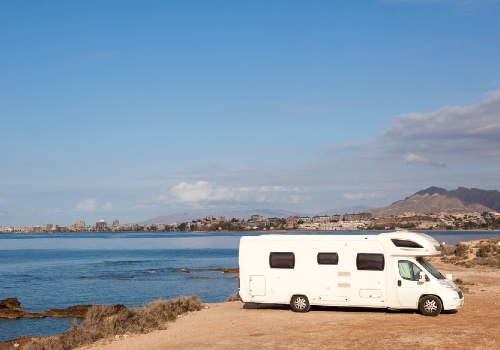
Most RV lenders stick to RVs that are no older than ten years of age to protect their investment if they need to repossess the camper and sell it off if you default on the loan.
If you’re looking to finance an older RV, you may need to take a personal or home-equity loan instead or use a lender that accepts older models.
Is the RV for Full-Time or Part-Time Use?
This detail is something most RV buyers never consider as a decisive loan factor, but lenders have rules that may prevent you from financing a camper you plan to live in full time.
If full-time RVing is your dream, don’t worry! Some lenders will work with you, so find them before you start putting in RV finance applications.
What Are Typical RV Loan Terms?
What should you expect for average RV loan APR and repayment terms?
The spread on RV loan interest rates (APRs) can range from around 4% to as much as 18%. A person with good credit should expect interest rates in the 4%-%6 range, but overall the rates are beginning to climb.
RV loan repayment terms typically start at 60 months but can vary from 48 to 240 months. The newer and more costly the RV, the longer the loan, so payments aren’t so shocking to the wallet.
I have one elderly RVing friend who came into the campground in a new $650,000 luxury motorhome. When I was asking why he would do such a thing at his age, he started laughing and said, “If they want to give an 83-year-old man a 20-year loan, I’m going to camp in comfort for the rest of my days!”
While he was comfortable with that set-up, a ten or 20-year loan is a huge commitment that you must consider for a younger person.
Where to Get an RV Loan
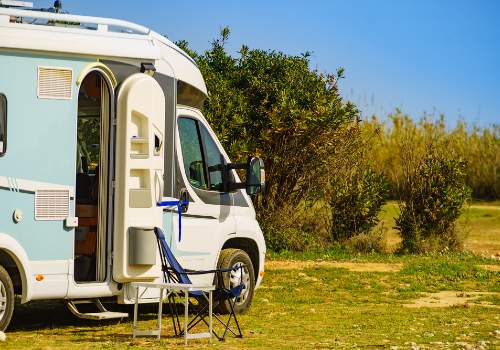
Where can you find a place to get an RV loan? You can go through an RV dealership, your bank, or through lenders who specialize in RV financing.
RV Dealership Financing Pros and Cons
Most RV dealerships offer to finance. Some keep the loans in-house, while others work with outside lenders.
The pros of financing through a dealership are:
- Convenience (you’re already there)
- Increases negotiating power over APR, RV price, or options
- Dealers try harder to fit the loan payment to your budget
- Down payment is usually less
RV dealership financing cons include:
- APR can be lower elsewhere
- Focusing on monthly payment vs. overall cost can hurt your bottom line
- A high credit score requirement
Personal Bank Financing Pros and Cons
Do check with your financial institution about RV loans as some may offer it or allow you to take a personal loan to complete the deal.
The pros of financing through your bank are:
- History – they can quickly see your status for approval
- Speed – you may get approval for a personal loan in minutes
- Easy to set up automatic payments
Personal bank financing cons are:
- APR will almost always be higher
- Loan amount will be smaller
- Loan term will be shorter
RV Lender Financing Pros and Cons
RV financing through specialized lenders may take a bit more legwork but are often the best route to take.
The pros of RV lender financing are:
- The most competitive APR
- Flexible repayment terms
- Higher loan amounts
- Can work with people who have poor credit
Want to Connect With a Community of Over 1,078 RV Enthusiasts?
RV lender financing cons are:
- Takes more time/effort to submit all the paperwork
- Can take longer for approval
Should You Use a Home Equity Loan to Buy an RV?
Another option to finance an RV is to take a home equity line-of-credit loan. The advantage of choosing this loan is that the interest rate will often be lower than any other lender.
The amount of the loan can also be more flexible and works efficiently to streamline your monthly budget.
The risk you take by making an RV purchase using a home equity loan is that you’re putting your home in potential foreclosure if you can’t keep up with RV payments.
Should I Finance My RV or Pay Cash?
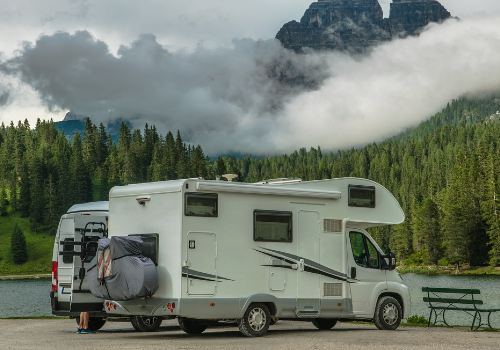
Surprisingly, there are many benefits to financing an RV over paying cash.
First, you can keep your money in the bank or investment portfolio where you can continue to collect interest or build up long-term wealth. RV loans are simple interest, where investments offer compound interest which will outperform the charges you incur through the RV loan terms.
Another benefit is having cash available for emergency use. You may need to get a hotel because your RV broke down mid-way through your vacation or a medical issue arises.
Financing allows you to purchase GAP insurance on the RV, that you cannot get when paying cash. If your RV gets totaled and you owe more than it’s worth, this will cover the loss.
If you pay cash for your RV, you’re out the difference because standard RV insurance policies will not cover depreciation loss.
Lastly, you can use your RV loan to keep your credit current or build up the rating as you make payments over time. This factor can be especially handy for RVers who are otherwise debt-free.
Best RV Loan Companies
Southeast Financial
Southeast Financial is the best RV finance company for people with poor credit. Their Credit Challenge Program matches customers with poor credit scores (as low as 550) with banks offering RV loans.
Income must be stable and at least $20,000 yearly. Discharged bankruptcies are okay, and RVs can be as old as 15 years to qualify as collateral.
You can borrow up to $75,000 with 60 to 180 months for repayment. Loans are only for part-time RV usage and not for park model RVs or full-time RV living.
Alliant Credit Union
Alliant Credit Union is a great source for RV financing for loans up to $300,000 for people with good credit. The company offers very competitive APR rates and repayment terms up to 20 years.
LightStream
LightStream is the best place to get RV loans from $5,000-$100,000 quickly, often qualifying you in the same day. Repayment terms are shorter than other RV loans from 24 to 84 months.
Bank Of The West
Bank Of The West is the place to look if you have excellent credit. Rates can start as low as 3.99% APR on loans from $10,000-$2 million.
Repayment terms range from 48 to 240 months on RV for part-time or full-time use that is not older than ten years of age.
SunTrust
SunTrust (Truist) is another top lender for RVs, especially luxury models with $500,000-$1.5 million price tags that are under 10 years old.
Finance terms up to 240 months help lower payment amounts, and they offer competitive APR interest rates. The company eliminates many standard financing fees, and you can apply online.
Final Thoughts
Financing a recreational vehicle is a great way to start enjoying the RVing lifestyle right away while paying off your camper over many years.
When you use the information above to prepare for and negotiate the best RV financing deal, you’ll have more cash in your wallet to spend on incredible camping experiences.
Rarely anyone has the cash on hand to purchase an RV, but with RV financing, you can hit the road and start creating memories that will last a lifetime!
RV Financing (Video)
"Man cannot discover new oceans unless he has the courage to lose sight of the shore."
-- Andre Gide

